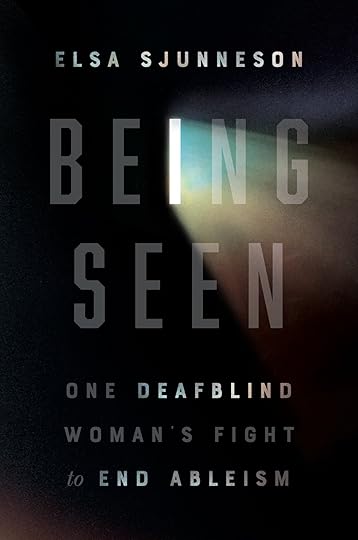Chuck Wendig's Blog, page 34
November 18, 2021
Ajit George: The Beautiful Challenge of Bringing India to D&D’s Ravenloft
 Writing for Van Richten’s Guide to Ravenloft was one of the most exhilarating and daunting game writing experiences of my life. I am the first writer of Indian origin to write Indian-inspired material for Dungeons & Dragons. I felt a huge pressure to get it right. Of course, there is no way to capture a country so large, old, and diverse. My solution was to narrow my focus and create something compelling that wasn’t a one-for-one analog of India but took inspiration from a wide range of source material.
Writing for Van Richten’s Guide to Ravenloft was one of the most exhilarating and daunting game writing experiences of my life. I am the first writer of Indian origin to write Indian-inspired material for Dungeons & Dragons. I felt a huge pressure to get it right. Of course, there is no way to capture a country so large, old, and diverse. My solution was to narrow my focus and create something compelling that wasn’t a one-for-one analog of India but took inspiration from a wide range of source material.
The other big challenge was creating an atmosphere of horror. Ravenloft is D&D’s iconic horror setting, and I was tasked to write two new pieces for it. Yet, I was worried about depicting India or Indians poorly. I was very aware of the terrible and racist pop culture entries about India and horror, the most obvious being Indiana Jones and the Temple of Doom. All too often, that’s what people think of when they think of India and horror, and I wasn’t eager to add to those terrible representations.
My solution was to avoid creating cliched non-player characters (NPCs) that served chilled monkey brains for dinner or ripped out hearts while screaming “Kali Ma”. While the three key NPCs of Kalakeri (Ramya, Reeva and Arijani) are genuinely monstrous, I decided to focus the real horror through the customs of the land that were open to interpretation for good or ill. I had originally planned to design a system that governed these customs.
Due to space limitations, Wes Schneider (the project lead for Van Richten’s Guide) and I mutually agreed to use the existing renown system from the Dungeon Master’s Guide. It shortened the piece and allowed the players to interact easily with the two main factions vying for the Sapphire Throne. I am proud of how renown turned out in the book, and here is some context behind what shaped renown—the Favor system.
Favor was inspired by many elements of Indian culture, but the primary ones were the boons depicted in Hindu mythology and the caste system.
Boons always fascinated me. They act as a sort of ruleset that even the gods must obey—once given, the universe bends to them. The great rakshasa king Ravana won boons from the god Brahma (or one of the other gods depending on the telling) for doing penance. These boons make Ravana invulnerable to all the dangers of the world including the gods themselves, leaving only humans as his weakness. This sets the Ramayana in motion as the god Vishnu reincarnates himself as the mortal Rama to defeat Ravana. I found this incredibly intriguing—that the gods could give Ravana such power, even power that would cause them enormous difficulty, because of Ravana’s observation of proper ritual and penance. Indian literature and mythology is littered with examples of kings, heroes, sages, demons and gods changing the course of history through a boon or a curse.
The caste system has been baked into Indian society for centuries. In my work in India, I’ve seen firsthand how those of marginalized and “low caste” show deference for those from more privileged castes. This has translated to an informal system where the poor and marginalized are often forced to be exceedingly obsequious to the wealthy and powerful with hopes of patronage or reward.
Now that some time has passed, I’ve had an opportunity to put together some flavor text for those of you who are interested in engaging more deeply in the cultural elements of Kalakeri:
The ancient custom of Favor has been part of Kalakeri for centuries. It describes the expected proper conduct of all individuals in society. Originally detailed in a series of ancient religious and philosophical texts that helped shape Kalakeri, it has been attributed to seminal moments in the lives of various legendary monarchs and heroes throughout the centuries. The founding of the Vasavadan Dynasty is tied to the Favor won by Vihaan from the great dragon Sarthak. At the same time, many say that the ill fate of Kalakeri is a curse from the goddess Ghoravara, because of the unfavorable deeds of the Vasavadan scions.
Favor permeates every level of society, and it governs routine interactions. Good hospitality is expected by all denizens of Kalakeri and earns modest Favor. Favor is most impactful when gained with those of higher station. In the original religious texts, it is described as a way for even the lowliest to petition the powerful. One of Kalakeri’s most important foundational stories is about a beggar who completed many great deeds to gain Favor with the maharana to save the life of her son.
The higher the station, the more formalized the process of building Favor and the more critical the stakes. A hero of Kalakeri may undertake challenging quests to accumulate great Favor with the maharani. In some cases, the individual will know what will help them gain Favor with the person in advance. Alternately, they may directly ask in an audience, “Maharani Ramya, I wish to curry Favor with you. What would you have me do?”
While Favor is powerful, it won’t make NPCs take completely irrational actions. An NPC won’t commit suicide at the whim of a Favor. But it’s possible to have a lieutenant betray Ramya because of Favor. Favor is strong enough to make individuals do things they would otherwise not do, and this applies to all, good or evil, who are raised in Kalakeri.
Among Kalakeri’s most prized literature are the tragedies of mighty heroes and nobles undone by Favor. Favor with Ramya enabled Reeva to ask her sister to meet with Arijani, which led to Ramya’s death. Equally, there are stories about heroes and villains cunning enough to obey the letter of the Favor asked, but not the spirit. Kalakeri’s epic tales of love, loss and triumph have Favor at their core.
The renown system in the VanRichten’s Guide to Ravenloft does a great job in setting up complex political machinations, one well suited for grand campaigns of dark fantasy. You can deepen that mechanic with more cultural context from the Favor system or personalize it so it revolves around individuals rather than factions.
Because of the power of the three main antagonists, a campaign set in the dread domain isn’t likely to start off with the player characters facing off against Ramya, Reeva, or Arijani—it’s going to be too hard to do so. And even if they are successful in defeating one of them, is Kalakeri really any better off?
But players might mitigate the evil of the three if only they can accumulate enough Favor with them to force them into new courses of action, or to blunt some evil they are perpetrating. Of course, to gain Favor with such ruthless antagonists, what might they ask of the players? To accumulate more and more Favor, the players will have to become intimately tied to these NPCs and drawn ever deeper into their internecine struggles.
Perhaps even more intriguing, and horrifying, is that the PCs are encouraged to play the middle with this monstrous royalty. Surviving the court of Kalakeri is like juggling knives; you don’t want to just gain Favor with one faction, because you need to ensure it does not get too powerful. Inevitably you will betray it to gain Favor with another faction. The domain is unlikely to improve, but you’re hoping it does not get worse. Both sides will hate you and love you as you play the game of winning and losing Favor, betraying, and supporting each side. You are continually torn between the powerful orbits of Ramya, Arijani and Reeva, winning and losing Favor in this nightmare land.
And if you want to take it to the next level, Favor can be applied to any NPC in Kalakeri. Flesh out the rebel NPCs, or lieutenants to the three main antagonists—all of that’s possible.
The horror of Kalakeri is both personal and social. Who will the player characters suborn themselves to? What crimes will they be complicit in? And what will they lose in the process? This domain offers so much to explore.
If you’ve enjoyed the groundwork laid by Kalakeri, but want fully developed adventures set in the domain, check out Unearthed Aventures: Kalakeri by the Panic Not! D&D community based in India. They’ve done a splendid job taking the seeds I’ve laid out and creating something special.
* ed note: we tried sourcing the artist names to these pieces but could not find them, if you are aware of who the artists are to these pieces, please drop them in the comments below, thanks!

***
Ajit George is the Director of Operations for the international non-profit the Shanti Bhavan Children’s Project, a leading non-profit in the field of education, and poverty alleviation. He is featured in the original Netflix Documentary Series, Daughters of Destiny. In the field of games, he has written for a variety of indie companies including Bully Pulpit, Thorny Games, and Monte Cook Games, and is a diversity consultant, speaker, and activist. He has most recently written for D&D’s Van Richten’s Guide to Ravenloft.
November 16, 2021
Goodreads Choice Awards And Other Such News
 Greetings and salutations, Friends of This Blog, I come to note that, to my surprise and delight, The Book of Accidents has found its way into the first round of the Goodreads Choice Awards under Horror. It is, as the saying goes, an honor to be nominated, especially among such a fine group of authors and books. Were you so inclined to vote for it, I would definitely buy you a puppy*, but I also note that there are so many excellent books on that list, you’re flush with options for quality. As you are in all the categories, it seems–
Greetings and salutations, Friends of This Blog, I come to note that, to my surprise and delight, The Book of Accidents has found its way into the first round of the Goodreads Choice Awards under Horror. It is, as the saying goes, an honor to be nominated, especially among such a fine group of authors and books. Were you so inclined to vote for it, I would definitely buy you a puppy*, but I also note that there are so many excellent books on that list, you’re flush with options for quality. As you are in all the categories, it seems–
In sci-fi you have Martha Wells, Sarah Gailey, Matt Bell, Nnedi Okorafor. In fantasy, you have C.L. Clark, Alix Harrow, P. Djeli Clark, Zoraida Cordova. In mystery/thriller, S.A. Cosby, and S.A. Cosby, and did I mention S.A. Cosby? And back to horror, c’mon. Catriona Ward and Grady Hendrix and Stephen Graham Jones and Richard Chizmar and I’ve heard excellent things about Lee Mandelo’s Summer Sons. It’s a buffet of goodness. Go show some love.
I will note that it’s a huge bummer the awards aren’t allowing Write-Ins this year. I always thought that was a good way to invoke reader choice in a dynamic way. So it goes.
Some other quick beats:
Hey, I got interviewed by Locus, and here’s an excerpt.
At Tor Nightfire, Emily Hughes has done an epic compilation of horror’s 2022 releases — and when I say epic, I mean epic. If you were ever thinking horror has not made a profound resurgence, just scroll down that list. Wayward (aka the sequel to Wanderers) is on there, by the way, set for August 2022, barring no shipping or printing shenanigans. And it is there amidst mighty company, and I can say with total sincerity that it is really cool to be a part of this moment when, I think, horror has come roaring back, and roaring back in a way that is — to my limited, privileged eye, at least — considerably more diverse in authorship and in narrative than before.
And I think that’s it for now. Bye!
* the puppy isn’t real, it’s a ghost puppy, a haunted NFT named “Scooter”
November 11, 2021
Terribleminds Gift Guide 2021
 It is again the time of the year for merriment and mirth and wanton capitalism, and because that this year we have things like the chaotic supply chain and shipping issues and something called “inflation,” I figure it’s best to get the annual gift guide out the door and into your eyeballs as soon as possible.
It is again the time of the year for merriment and mirth and wanton capitalism, and because that this year we have things like the chaotic supply chain and shipping issues and something called “inflation,” I figure it’s best to get the annual gift guide out the door and into your eyeballs as soon as possible.
A note on this year’s gifting list — normally, I call this Gifts For Writers 20XX, but this year, though many of the gifts are still focused on hey the writers in your life might like this, I’ve instead decided to just lean into, “hey, these are things I think look cool, maybe you think they’re cool, too.” The original purpose of doing Gifts For Writers was that year after year so many of those gift lists comprised only entries like, “omg they like notebooks and pens and more notebooks and probably a candle.” Meanwhile every year, ever writer probably receives a veritable holiday colonic of notebooks and pens and candles. “GOOD HOUSEKEEPING SAID YOU NEEDED THIS GEL PEN. HERE ARE 50.” Not that we hate notebooks and pens! Far from it. I’m bathing in blank notebooks right now. I eat pens! It’s just — it’s a little overdone.
Anyway. Whatever. Let’s do this.
Ooh also if you want last year’s list — 2020.
And the years prior to that:
2019, 2018, 2017, 2016, 2015, 2014.
Chocolates Chocolates ChocolatesYou know what’s good? Chocolate. The world is bullshit but chocolate is delightful. And god only knows, one day chocolate and coffee will both be extinct thanks to rampant climate change (happy holidays!), so let’s get in on it while the gettin’ is good. Of course, I also think it’s important to try to get chocolate that is ethically-sourced, so I’ve attempted to be helpful in that regard. Writers, too, especially need chocolate — either for themselves, or as gifts to other writers.
If you want fancy, weird, wonderful chocolates — and trust me when I say truly they are some of the best morsels of delight I have ever put into my slavering maw — then you should look no further than Bon Bon Bon. They give you these little single-box peculiarities? And it’s run by a diverse crew, mostly women if I recall, sourcing ethical chocolate.
I also like Compartes (who claims here to be ethical in their slave-free sourcing) and Dandelion will get you single-sourced chocolate with unique tasting notes like you’d get with coffee. For cheaper bars I would normally recommend Tony’s Chocolonely, but they’ve been removed from the Slave Free Ethical list because of ties to big cocoa, though the company I guess also argues that they’re invoking change from within. (Details here.)
I ScreamTHERE IS NO DANA, THERE IS ONLY JENIS. Sorry. I really like Jenis! Their coffee ice cream is the best coffee ice cream. Also right now they have free shipping until 11/14.
Okay, fine, I also like Van Leeuwen. Honeycomb and Earl Grey.
Wait, is this gift list just a gift list of things you should buy me?
*stares suspiciously at self*
Okay, Fine, Be Healthy Too, Whatever, NerdNot sure how long it’ll be open, but currently you can get *blows trumpet made of apples* HEIRLOOM APPLE GIFT BOXES from Scott Farm in Vermont. You can also buy something called a “medlar,” which is tempting. Or Northern Spy from Farm to People. What do apples have to do with writing? Nothing. They’re just good for you. And if something is good for you then it’s good for your brain and good brain means good writing. Or something. Shut up.
What I’m Saying Is, Feed Us, For Fuck’s SakeWe’re starving artists who need food! Okay, probably not. Hopefully not. But sometimes I do find that writers fall into a writing hole and then wake up and it’s like, 8PM and we haven’t eaten since breakfast. (I don’t do this anymore because I have a ten-year-old boy who will kick down my office door and slit my throat for a hamburger or piece of sushi.) You can get us meals or food via places like Fresh Direct, Hello Fresh, Blue Apron, places like that. I tried Misfits Market but found their produce wanting. You might be able to find cool local farm deliveries on Barn2Door, too.
Oh Also CoffeeBrandywine Coffee Roasters is local(ish) to me, and has unique art on every single origin roast, and their coffee is sublime. They have great relationships with roasters, too.
Oh Also BeerI use an app called Tavour to get access to weird, less-available beers, ciders, meads and such — this link I confess is a referral link, so be advised when you use it. But their service has been a pandemic essential. Beer! Delivered! Magic!
Play A Game, Tell A StoryI love the offerings from Leder Games — particularly Oath, but everything I’ve played so far is pretty delightful, both as products and as games and as ways to tell stories with those games. They’re not RPGs, not really, but some of their games have persistent narrative advancement, which is fascinating and cool. So too with Above and Below. If your kids are littler, they might dig Super Silly Stories from Parker Games. Or Sci-Fi Magnetic Poetry!
Oh Wait What Is This, A Shameless Plug, Wow Who Knew That Was ComingI write books and if people don’t buy those books I die in the abyss, never to write again. So, you can certainly buy my books, and that would be nice. If you need a book about how one tells a story: Damn Fine Story. If you need monstrous motivation with wonderful art from Natalie Metzger: You Can Do Anything, Magic Skeleton. If you like spooky: The Book of Accidents. If your kids like spoopy: Dust & Grim. And as always, you can check with my local store, Doylestown Bookshop, if you wanted signed/personalized versions of any of my books. If you want to find an independent bookstore near you, Indiebound has you covered.
Comfort In An Era Of DiscomfortThese days I am trying to seize on small, comfortable joys, and as a writer there are ways I have upped my comfort level that I will share with you now. Chief among them? I invested in some freakishly nice socks. I wanted nicer, cushier socks for running, and someone recommended Thorlos, and now I am recommending them to you, as well. I don’t just use them for running. I wear them for walking. For standing. For sitting. They are like HUGS for your FEET from a SOCK ANGEL. Seriously, there’s something very nice about giving yourself comfortable footwear. That’s a decidedly old person thing to say, I do recognize, and I also recognize that these socks are not cheap socks. I’m sure there are more expensive socks! But these are pricer than whatever Fruit of the Loom shit you’ve been tucking your piglets into every day.
I also need to up my underwear game (this is not a thing you ever wanted me to say, but here I am, saying it). I’ve heard good things about the boxers from Patagonia, but again, not cheap.
Also, The Boxers from Patagonia will be my lit fic debut in 2028. Watch for it.
If you want nerdier, bookish garments: Out of Print is cool.
Anyway. Consider too offering as a gift some manner of ergonomic goodness. Ergnomic desk chairs are an option, though good ones are not cheap. But there are good laptop risers and trackpads and keyboards that are ergonomic, too, and won’t cost as much as a new fancy-ass chair. There’s also standing desks if you hate someone.
Or you could just get them this thing. It’s a cocoon of some kind. It embraces you. It protects you from the world. It may also be a toilet, I don’t know? I cannot define its mysteries. I only know that when you emerge from it, you will be a beautiful butterfly. Or a weird moth.
Honestly, weird moth is better.
More Foods I LikeWait, are we back to food again? Jesus, I might have a problem. That problem being, delicious food. Anyway. If you haven’t found the sheer joy of chili crisp, Fly By Jing’s version is sublime, but there’s always classic Lao Gan Ma. My current favorite snack is Indomie Migoreng noodles. (Terrible holiday present? Whatever, stick it in a stocking.) You know what else is great? Bachan’s Japanese BBQ Sauce. Or Nong’s Khao Man Gai sauce? Hnngh. What does any of this have to do with anything? I dunno. I might be hungry? I think I’m hungry. Oooh ooh Soom Tahini is good too. And Philly-area-based! Do you care about what hot sauces I like? Too bad, you’re getting some recommendations:
Shaquanda’s Mx Green Sass. Iris Lune, Eclipse. Hot N’ Saucy, Garlic Pepperoncini. Any of the Los Calientes. Atlanta Hot Sauce’s Small Axe Peppers sauce. (Though the classic three table sauces at our house would be Secret Aardvark, Cholula’s green sauce, and Crystal.)
Eat good food!
Kitchen GearNow we’ve officially left “things for writers” and have firmly entered into “things Chuck Wendig likes,” but fuck it, here we go. I like kitchen gear, and here is some of my favorite kitchen gear that gets a lot of love and use in the house:
My Vitamix blender is something I use damn near once a day.
My Le Creuset gear is not in any way overrated and I use it constantly.
(Look for both on sale.)
I love this Lamson hamburger turner, and this fish turner.
I have an Ooni pizza oven I deeply adore. It gets to 900 degrees and cooks pizza in a blink.
If you want a kitchen knife that is not expensive but is versatile and bad-ass?
Victorinox Fibrox Pro chef’s knife.
LEGO GoodnessThis LEGO Ideas Typewriter is cool as hell.
And yes, we’re back to “gifts for writers” now. Sorry about the whiplash.
Throat OozeSo, I do a lot of Zoom calls and such for WRITER WORK, and that can be chats with other writers, but it’s also podcasts and book events and school events. And even when not doing Zoom, I do stuff in person, and one of the things I am in constant need of is soothing my dry, brittle, dead-leaf esophagus with some kind of calming balms of throat unguents. Ricola drops are pretty helpful for this, but honey is also good — just a spoonful. Dark chocolate works. Or anything with pectin, honestly. Even an apple. (“It’s always apples with you, isn’t it?”) Asheville Bee Charmer has great honey, if you so require it. And the Mac Nut honey from Big Island Bees is one of my favorites, too.
Screen TimeFinally, this thing — the Hoverbar Duo. Great for doing video calls or Zoom on a phone or iPad. Also if you use a tablet as a computer, this can be how you turn that screen into a monitor. My son loves this too, uses it to draw on with Procreate. Twelve South’s gear tends to be incredibly well-made, by the way. Really love their stuff.
THAT IS ALL.
HAPPY HOLIDAYS, WORD NERDS AND WEIRDOS.
Peace and chili crisp unto thee.
November 8, 2021
A Bucket Of Thought-Spiders Dumped Inelegantly Upon Your Head
 Once more I return with a newsletter-flavored blog-post of various updates and notions and herbs and spices. Behold my thought spiders as they skitter upon your scalp, delivering the good word! And the good word is sesqupedalian. Anyway. Let’s do this.
Once more I return with a newsletter-flavored blog-post of various updates and notions and herbs and spices. Behold my thought spiders as they skitter upon your scalp, delivering the good word! And the good word is sesqupedalian. Anyway. Let’s do this.
Hey, guess what? Not only did I turn in the first draft of the Wanderers sequel, Wayward, I also got my edit letter back and apparently it’s… not terrible? I dunno! I confess that writing this strange post-pandemic book during an actual pandemic was super-weird, and looking back over the book, I realize a not-insignificant portion of it was written in a fugue state. Like, I somehow wrote 280,000 words, but it feels like a dream?
So, to discover that the book apparently was not a dream and that works is… well, that’s good fucking news. Especially since it is so huge, so to find out that I’d actually written 1100 pages of ALL WAYWARD AND NO WANDERERS MAKES CHUCK A SAD BOY would have been, uh, bad.
There is no cover yet, but it is in-process. That said, there is a publisher landing page for the book now where you can go and read the book’s synopsis (note: contains some Wanderers spoilers, obvs), and at that link you can also pre-order the book, hint hint. The book releases, good lord willing and the creek don’t rise, this summer, on August 2nd, 2022. I’m excited for people to read it. I didn’t plan to do a sequel for the first book, but I always said, well hey, if I come up with something and the sales from the first book justify it, fine, okay, I’ll do a sequel. I had an idea on tour for the first book that set the path, and sales (thank you, all!) were really good.
So: book. Sequel. Soon. Yes.
Poly TicksThere existed some political shit last week, what with the Tuesday elections swinging weirdly and wildly toward Republicans in a lot of places — I know here, locally, we had some schoolboard races go firmly into the column of some Q-Anon or Q-adjacent, militia-backed batshit motherfuckers, which is, uhh, not ideal? We’re a fairly well-to-do county, purple in parts, and blue at its heart, but its more rural environs are deeply red. Growing up I had viewed the GOP presence here as bad, but like, regular bad. You know, capitalist big-business bad. Not gonna rock the boat too much because, well, that’s not good for profits. But it wasn’t really culture war crazy, or so I thought. Maybe it was, maybe I was sheltered or naive. Whatever the case, it’s culture-war-crazy now, and it’s bold-facedly, unashamedly so. The GOP these days increasingly rises, falls, and from its rotten mulch emerges a new pillar of slime and fungus, this one stenchier and weirder than the last. And now it’s all anti-vax, anti-mask, Trump-is-Jesus, celebrities are coming back from the dead, Satan is in your medicine, whackadoo bullshit.
I know too that from Tuesday’s results, we’re going to see a lot of talk of WHAT DEMOCRATS SHOULD DO, and most of that is going to be wrong-headed, and I know everyone is going to give into the fallacy of the single cause, but of course, this is a many-headed hydra we’re dealing with: a Democratic Party always pushed back on its heels in an awkward, defensive posture; a media glad to carry water for the GOP in the false religion of Both-Sidesism; a GOP willing to embrace truthiness and bigotry and offer a host of lies that Democrats counter logically but rarely emotionally; Democratic gridlock nationally, because we have the narrowest of majority margins, with our arteries blocked by the human cholesterol blobs called Manchin and Sinema; and most notably, a roughly-irrefutable pattern of voter behavior dating back 50 years where the things that are happening are sadly to be expected. The VA GOV always swings back to the opposing party of the president and has for decades. Hell, the fact a Democrat governor won re-election in New Jersey hasn’t happened since what, 1977? (And despite the narrative that Youngkin’s win was decisive and Murphy’s win was narrow, it’s important to realize Murphy’s win at this point is the bigger of the two. Once again, media carrying water, yadda yadda.)
I dunno. I don’t know what the fuck I’m talking about, honestly, but it seems to me we already have a lot of people saying, WELL, IT’S BECAUSE THE DEMS ARE TOO WOKE NOW, TOO PROGRESSIVE, THEY NEED TO BE MORE CENTRIST, except hear me now that this is the worst thing you can do. You can only go more progressive. You cannot go the other way, because then you’re just GOP-adjacent, and if someone wants to vote GOP, they’ll vote GOP, not someone gussied up like the GOP. We want bold action that brings us in line with the rest of the first-world nations. Here, our “progressive” is their centrism. We’re way behind. Democrats just need to do work better messaging. All the progressive policies are designed to be popular. They are popular when you actually explain them. People want jobs and child-care and not to be buried by health care debt and student loans. Help people, and then say, “Here, look, we helped you.” Oliver Willis on Twitter talks about how we need that Trumpy bluster, and he’s not wrong. As he notes, can you imagine a Democrat using Trump rhetorical tactics except they actually have truth and justice on their side?
Do good things, offer good things, say they’re good, and own them. Dems always feel like they have this not in the face, not in the face factor, like they’re ashamed of wanting to enact all these programs and policies. It’s weak and they really have a huge branding and messaging problem and uggh gods, this is boring, let’s talk about something else now.
Process TalkFor writers, I think it’s important to note: your process can change. I feel like a lot of writing advice, even from me, sometimes acts like your writing process is a thing carved in bedrock, a signpost on a mountain that will forever point the way, but it is vital to be aware that your process is a series of teleporting bullseyes. For a very long time I identified myself as a ‘pantser by heart, a plotter by necessity,’ meaning outlining was a vital part of my process. But I didn’t outline Wanderers, and I haven’t outlined since. That’s not a decision that has a value to it — it’s not good that I changed, and it’s not bad. I think we can get caught up in making moral judgments about writing processes, ours and others (which is pretty inane), often based on, “Well, if I do it, and it’s successful, then it is the correct way.” (Survivorship bias is a helluva drug.)
For me, I think it’s just important to note that you’re allowed to change, and often, different books demand different things. And we are different writers at different periods of our lives. And the world around us affects who we are as writers, too. The pandemic stopped me from writing much early on, but then also began to change how I interface with my writing, why I do it, what kinds of stories I want to tell. I don’t think that’s strange, really — you plonk a big-ass boulder in the middle of a river, the river waters will change direction, they’ll push up the shores, they might even form a new tributary. Life changes with age, experience, existence. It’s not odd that your writing process changes, too. I feel like a different writer when I finish a book, and then when I start a new book, I feel again like a whole new writer — both in the sense of being refreshed and also, uhh, well, completely unsure what the fuck I’m even doing. And I’ve taken that to be normal.
Either way, remember the cardinal rule:
Writing advice is bullshit.
But bullshit fertilizes.
My Nanowrimo Pep Talk 2021Ooh, I sometimes do one of those and I haven’t this year. Do you want one? Are they helpful? Well you were too slow to answer because HERE GOES:
Go wild. Throw yourself into the work like a rabid chimp against a sliding glass door. Run pantsess through Wal-Mart. Any of the safety mechanisms and limitations you might usually place on your work, smash ’em with the heel of a boot and see what happens. Like, if we are to view this month as an opportunity to not fall into the trap of but what does the market want, what are the trends, what will an audience think, and we further view it as a chance to use our writing as an explosive testing chamber, then you can do anything you want. It’s a sandbox on fire. A heart gushing aerated blood. The empty page is a chance to write the most wonderful thing, or the most fucked up thing, or the most wonderfully fucked up fucked-upedly wonderful thing. Like, sometimes, it’s good to stop and look at that blank page and realize fully, I can do whatever the hell I want here. Really. Anything. And I think looking around us, seeing the pandemic, seeing the world changing, seeing the chaos, maybe that’s a sign to embrace this outlook, even if only for this month. We are not guaranteed more time or more chances, but you have this time, you have this opportunity, so why not materialize every want and fear and idea and anxiety you have roiling around your skull? Bring the monsters out to play. See what happens. Throw all the fucks out of the fuck basket, and the fuck basket is now a boat, and you’re going over the waterfall. See you on the other side. Try not to die!
The Birdsite Is Bad, ActuallyRead this from Fonda Lee: Twitter is the Worst Reader.
It is very, very good.
I’ve seen Fonda get put at the bottom of some of Twitter’s harassment funnels for some pretty innocuous stuff (as she points out), and having been someone who’s been there himself, well. Yeah. I used to love Twitter a whole lot, and it has done me a world of good. It’s also, obviously, done me the opposite, and sometimes it’s just corrosive, having to deal with like, people literally talking about killing you because they think you insulted J.R.R. Tolkien when really all you said was, you didn’t finish the book. (And honestly, to think that Tolkien somehow needs defenders is already quite puzzling. First, he’s dead. Second, I think he’s doing okay in the cultural importance realm, okay? Nobody’s demanding that we tear down his statues. He’s a treasure, it’s all good.) Other times, you get a right-wing bot-army to get you blacklisted from writing Star Wars, ahem.
I am wont to say that Twitter started out as a watercooler around which to gather, then without warning it became a stage where everyone is performer and no one is audience. Then, it shifted again, and now it’s a fight club. And you have to fight. Some of that fight is just and righteous, but not always, and that’s the problem. It becomes very hard to tell when what you’re seeing there or even participating in is justice, or performative justice, or disinformation, or simply, someone else’s revenge. It gets rather muddy, and mis/disinformation takes off at a rather aggressive gallop. And nobody has time to fact check, and even when they do, the fact checks lay discarded on the ground while the air above is filled with the rabid bats. Twitter has become a live-action, 24/7 scroll of people’s collective thoughts, and we’re all plugged into it, and that’s pretty fucked. You get any attention over there and next thing you know, it’s all sewer clowns and biting flies. I’m already using it a lot less than I used to, and I anticipate that trend will continue into the new year.
Next, I’ll hop to Tik-Tok, where I will embarrass myself doing various out-of-trend dances while trying to awkwardly hawk my books. It’ll be great. My journey to CRINGE LORD will be complete. I will be the Colin Robinson of Tik-Tok, just psychically draining you all of your will to live.
BUY MY BOOKS, HUSKS. MY AWKWARD GALLUMPHING DANCE IS TOO PAINFULLY ALLURING TO IGNORE.
Anyway. Read Fonda’s post. It’s right on.
Media In My BrainReading: Alex Segura’s Secret Identity, which is damn fine reading. Comic book noir about the comic book industry. Yes, please. Did I mention I finished Kiersten White’s Hide? Goddamn that was good. It’s a horror-fed American fable, a thrilling rendition of the nightmare of the prosperity gospel set in a ruined amusement park. Really good.
Watching: Nothing too exciting right now? Bob’s Burgers and Archer because apparently I needed my H. Jon Benjamin fix. Oh we saw Nightbooks too, if you need a good family-friendly scare-fest. Today, gonna carve out time to watch The Harder They Fall. Oh! You know what we liked? Cruella. I thought it was going to be awful and unnecessary but… it was really, really well-made? I wanted to hate it a whole lot but came away totally in love with it. Still not sure how they move forward with that character since in the cartoon she’s a puppy-murdering psychopath, sooooo. OH and duh I mentioned Colin Robinson — as always, What We Do In The Shadows is fucking sublime.
Playing: Sorry, still Mass Effect 3: Legendary. Almost through it.
How about you? What have you been digging lately? RECOMMEND.
Where’s WaldigThe Wall Street Journal reviewed The Book of Accidents:
‘Mr. Wendig has created a setting that matches up to H.P. Lovecraft’s Arkham and the back-country woods of New England. Instead of a mythology, he supplies constant domestic tension. Husband and wife, father and son, boss and rookie, strain whipped up by fear and doubt, magic looking for a weakness to exploit. After a hundred pages you feel like shouting at the characters: “Just run away and never mind the house!” But can you run from your own past? “The Book of Accidents” is a new classic in the haunted house genre, and it’s not just the house that’s haunted.’
(It’s always weird when anyone calls me “Mr. Wendig.” Like, what?)
Hey, I was on TV! Philly Live! Talkin’ books! And stuff!
Dust & Grim got a starred review from Shelf Awareness:
‘Dust and Grim, the middle-grade debut from Chuck Wendig (The Hunt), is a spooky, heartfelt, darkly funny adventure. Wendig’s renderings of various fantastical beings are vivid and unexpected, as are Jensine Eckwall’s spot illustrations. The monsters Molly assumes will be terrifying–such as Dave the Vampire–turn out to be harmless and very funny. Instead, the danger often comes from creatures of which Molly has never heard. The importance of relationships, regardless of blood relation, runs deep and gives an endearing core to this perfect Halloween read’
Oh also, Fangoria posted an excerpt of Dust & Grim right here.
Finally, I get to chat with the two-in-one author of James S.A. Corey regarding their final Expanse novel, and I’ll be talking to them (virtually) at the Brookline Booksmith on 12/2!
And Now, PhotosAs always, we end with oooh pretty pictures.






November 4, 2021
Jeremy Szal: Five Things I Learned Writing Stormblood
Vakov Fukasawa used to be a Reaper: an elite soldier fighting for Harmony, against a brutal invading empire. Harmony made him elite by injecting him, and thousands of other Reapers, with the DNA of an extinct alien race, altering his body chemistry to make him addicted to adrenaline and aggression, making him stronger, faster, and more aggressive and more powerful. And it worked. At a cost. Because alongside their supersoldiers, Harmony created an illicit drug market that left millions hopelessly addicted to stormtech.
Disgusted and disillusioned, Vakov walked away when the war was over.
Only, Harmony never took their eye of him. He may want nothing to do with them, but when his former Reaper colleagues start being taken out, Vakov is horrified to discover his estranged brother is the prime murder suspect, and has to investigate. Even though the closer he comes to the truth, the more addicted to stormtech he becomes.
WRITE WHAT YOU’RE PASSIONATE ABOUTSure, you can write what you know. That’s easy. It’s also methodical. Clinical. I wrote that way up until STORMBLOOD, where I decided that I was going to cram the pages with as much cool and wacky and absurd stuff as I could.
I decided to write what I was passionate about.
A character-driven, first-person space opera? Pierce Brown did it, so can I. Seedy alien drug dealers and smugglers? Sure. An entire asteroid, filled with hundreds of cities stacked on top of cities like the floors of a building, each with their own style, class and visual aesthetic? Go for it. A protagonist who wears a full suit of armour pretty much everywhere he goes? Sounds great. Space cults? Why the hell not? AIs that create avatars that look like animals they’re fond of? Who says I can’t?
In the past, I sometimes felt inclined to gravitate towards the common genre tropes. The done things. The things successful people were writing about. With STORMBLOOD, I decided to screw the rules. I was going to write exactly what I wanted to write. I wanted to write a voice-driven, first-person protagonist who literally gets high on the alien DNA pumping through his body. I wanted to make it intense, delightfully weird, in your face, and a little bit gross. I wanted this book to ooze passion and craziness. I wanted this book to be me.
And it worked.
WRITE FROM THE HEART, NOT THE BRAINI was a plot-driven guy. For a while, at least. When I started creating the character of Vakov Fukasawa, I was more interested in his story. Rather than letting the plot dictate the course of events, I let his emotional state drive the narrative. How trauma has turned him into someone filled with rage. How his childhood, and his relationship with his brother, his Reaper colleagues, has shaped his personality. Why loyalty and family and brotherhood mean so much to him. And how much it truly hurts to see the damage being done to them.
I wrote about these themes because they matter to me. I gave Vakov Fukasawa these values, these emotional soft points, but they’re my values. When I wrote about the pain, the loss, the heart-break, and the determination to do better, to do right by the people you love, I wanted them to come from a place of truth, from the heart. Not just from him, but from me. I wanted to believe what I was writing. When I went for the gut and for the throat, I wanted it to mean something.
I learned that, at the end of the day, I want my writing to touch the heart of anyone who reads it.
DON’T BE AFRAID TO GO THEREI’ve always liked fiction that was confronting, unexpected. That got you sitting up straight, lighting shooting through your veins, and a knot tightening in your stomach.
But doing that means taking a risk, and I don’t think I was brave enough to take it. Looking back, some of my fiction was a little passive. Inoffensive. But as STORMBLOOD started to take shape, I wondered how far I could go. If I was prepared to take risks with my characters and world-building. If I could really weird it up.
So I did. Given that the protagonist has an alien organism sniffing inside his body, there’s no lack of mentions about sweat prickling his back, his body hairs going stiff, or the alien DNA slithering down his ribs. What it’s like to really get high on an adrenaline rush, to feel an alien organism cranking your senses up to eleven in all its maddening and sticky glory (as well as the very messy after-effects). I threw my protagonist into terrifying, dread-filled situations, either where truly horrible things are done to him, or he’s forced to do horrible things to survive. Wasn’t sure if I had the skill to do justice to those scenes. If I wanted to damage my character in this way. If writing a protagonist who did and said these things would make him unlikeable. But I learned it’s necessary to push myself, to step out of my comfort zone and see if I could cook up a smorgasbord of insanity that really got the reader wondering what the hell they just read.
I won’t lie; I had a lot of stuff cooking up bizarre things to include that went the extra mile. Gothic Victorian space stations. Spaceships designed like cathedrals. Insane AIs used in interrogation that look like monsters. Suits of armour that like being worn. Drug dealers who have fused their DNA into the walls, turning entire rooms to an extension of their own body. Aliens who sell their own keratin and spinal fluid.
Go big or go home.
THE DARKER THE STORY, THE MORE IMPORTANT HOPE ISSTORMBLOOD is about war, trauma, domestic violence, drug abuse, human exploitation, and suffering on a galaxy-wide scale. Characters are not treated kindly. As the themes started to take shape, I knew if I screwed this up, this could be a relentlessly bleak ride. But soon, I saw the way to balance the scales. By developing relationships between the characters.
There’s some dark moments, to be sure. Characters get put right through the ringer and back. But I learned never to slip into nihilism or wallowing. The characters always had to be there to support each other, to have each other’s back no matter what. There had to be moments of peace and quiet. Where characters get to talk about their passions or relate a happy memory. Even when a very real threat was hanging in the air, Vakov and his best friend Grim had to have banter, little moments of comradeship and empathy (like having a drinking game and getting smashed in an alien bar. I’d fill a whole book of those, if I could). And when things got really dark, I learned to have moments where the characters reminded themselves who they were fighting for. Why their friends and family mattered so much to them, and why they’d let that hope, that love, give them courage to do the impossible. That darkness makes the light of hope that much stronger, and having characters be apart of that hope gave my narrative a human subtext.
VOICE IS EVERYTHINGI’m a sucker for loving descriptions of tech. I write space opera, so obviously world-building is on the table. And we already know how important character is to me. I went to great lengths with my previous projects to make every paragraph sing off the page.
But it wasn’t until I was editing STORMBLOOD that it hit home what I’d been doing wrong. None of that mattered unless it was infused with a strong voice. And by voice, I mean the protagonist’s voice. I want every word of these books to be filtered, coloured, and tainted by my protagonist’s mind. Sure, that’s a great description of a spaceship, but what does this spaceship mean to him? What’s the emotion, the history? It’s about how he sees things, the way he’d describe them with his dark and morbid sense of humour. More than that: I realised the prose, the sentence structure, needed to reflect his personality, as if he was speaking aloud. That meant going back and downgrading some of the language, making the narration more conversational, more terse and in your face. I chopped out any flowery phrases or pretty adjectives, made the language more visceral and gutsy.
That meant undoing many, many hours of work. That meant having a turn of phrase that’s rough around the edges. But I learned that, more than anything else, it was worth it. The book feels more organic, more raw than anything else I’ve written, because every sentence is drenched to the bone with the character’s voice. Hell, it even smells like him.
So if you don’t like it, blame him, not me.
***
Jeremy Szal was born in 1995 in the outback of Australia and raised by wild dingos. He is the author of many short stories and the space opera novel, STORMBLOOD, which was published by Gollancz in 2020 as the first of a trilogy.
Jeremy Szal: Website | Twitter
Stormblood: Amazon | Authors Website
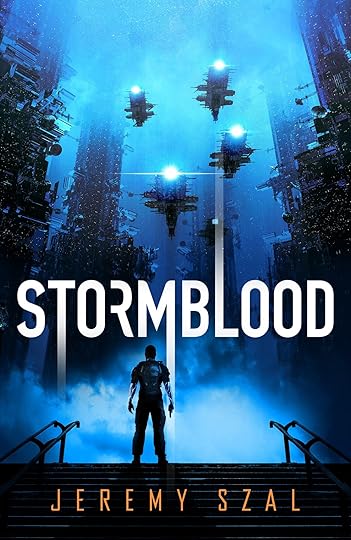
October 28, 2021
Emmie Mears: Five Things I’ve Learned Building a Writing Career the Wrong Way
Have you ever wanted to write a novel? How about twenty-two of them? Do you like being told no hundreds of times for a living? Great, me too!
What a rubbish sales pitch that would be.
I used to talk about writing a lot. For a while, I literally blogged every day. A lot of that was about writing. About writing books, trying to find an agent for those books, writing about other people’s advice about writing books, and eventually about signing contracts for books I wrote. And then everything went to hell, and I slipped back into the bushes like that Homer Simpson GIF.
I’ve tried to write this post about five times and have scrapped about two thousand words of it. I am leading with that, because it feels relevant.
I even hyperbolically labeled the document “attempt a billion” because I feel like I have been staring at it since the Cretaceous Period.
I’ve hit some strange milestones this year in my writing career, and while I had a lot to say about it, I didn’t know how to say it. So instead, I’m going to give it a go in five chunks. Five things I’ve learned, five wheels you shouldn’t have to reinvent, five lessons, five shouts into the windy void.
This Isn’t OverMaybe it’s weird to start out by saying something isn’t over, but I feel like it’s worth hammering into place with very large nails.
There was a not-insignificant amount of time where I believed my publishing career was dead before it had even begun. For those of you who don’t know me, my debut was put up for sale in a box set with three other authors’ books, released as a solo just in time to get orphaned, and removed from sale within six months of publication. Without going too in-depth into the other exciting points of that sob story (three orphaned books and an untenable contract and Agent Hunt the Third within three months of each other), when your debut barely sells three hundred copies, let’s just say acquisitions teams are not so keen on taking a risk on your next one.
From that point on, I spent a couple years self-publishing to a decent amount of success with my Ayala Storme series. But I had always wanted to sell traditionally, and it increasingly looked like it wasn’t going to happen.
My books started failing—and I do mean failing. The Storme sales dried up, partly because I took a sharp turn genre-wise, none of my novels was selling in the traditional world, and I was floundering.
But I held onto one thing. I told myself that everything I was doing was fertiliser. That I was sowing seeds in the earth below my feet, and that if I kept tending them, maybe they would grow.
I wrote new categories and subgenres. I started freelancing as an editor. I read craft books and style guides and kept writing new things. I tried short stories for the first time. I started a Patreon. I learned Gaelic to fluency. I started singing again. A brand new publisher decided to acquire my backlist and my shelved epic fantasy, and I decided to go for it.
It wasn’t over then, and it isn’t over now.
Seeds Take A While to SproutIn 2018, one of my musical heroes disappeared and was found later, having died by suicide. I wanted to write something to honour Frightened Rabbit’s Scott Hutchison, to process his death and the connections I’d had to his music and his mental illnesses—his words resonated with many people who shared his depression. But nothing I wrote seemed right.
Then, after a week-long Gaelic immersion course at Ceòlas in South Uist, something clicked. I came home and wrote “Seonag and the Sea-wolves” in pretty much one sitting and fired it off to Jen Gunnels at Tor who also reads for Tor.com. She bought the story within a month, with me writing as M. Evan MacGriogair. It ended up making the Hugo longlist and has been reprinted now twice, with a third contracted.
In 2017, I’d written a YA. It came close to selling many times, but it didn’t. Like many of my novels, it seemed promising when it went on sub only to fizzle out after a year or so, I suspect because according to BookScan, I’m a big, juicy trombone womp on the loss side of “profit and loss.” This was the twelfth or thirteenth novel-length work I’d written. We were about to shelve it when my former agent got in contact, as she was acquiring YA after a spell of only doing younger categories.
In 2019, I sold that YA as Maya MacGregor. It comes out next year from Astra Books for Young Readers, and it’s called THE MANY HALF-LIVED LIVES OF SAM SYLVESTER. My acquiring editor told me over a plate of chimichangas that when she’d brought the book to the team, they’d asked her how the hell I hadn’t been snapped up yet. I may have cried into my margarita.
And as a final example, way back in 2016 (remember when we thought that year was the Worst? Bless), I had the absolutely, lolsob-worthy timing of releasing a book about a city slipping into the pit of fascism the very week the US elected Trump. It wasn’t a coincidence that I wrote that book—my degree is in history, and a big part of that was spent studying the reemerging extremist cells in Europe and the US. But despite its painful topicality, the book sank. Hard.
A few weeks ago, that book—which I am writing this post to promote—earned me my first ever starred review for its new hardcover edition. Five years after it “failed.”
Publishing is a Luck GameI think we can all recognise that publishing is far from a meritocracy. It doesn’t diminish the power or impact of wonderful work to say that getting a book on a shelf is a concoction of timing, the nebulous markets, what an editor just bought, whether an editor is vibing with something in particular, and a million other factors.
You can write an amazing book and not sell it. You can write a book people hate and sell millions of copies. (Not here for bashing Twilight—like it or not, Meyer did something very right.) You can yeet a book onto Amazon and do absolutely nothing and have it somehow sell a thousand copies in its first few weeks and then go on to sell almost twenty thousand more. You can pour your soul into a book and have it sink like a lead-covered stone dropped over the Mariana Trench.
There is relatively little in our control, and before I get a pitchfork to the gut, “little” is not nothing. It’s just possible to do everything “right” and not have a breakthrough book. But that also means that sometimes, just sometimes, lightning strikes.
Publishing is a Long ConAs I went through Point Two on this list, you probably can already guess the gist of this one, because they’re closely related.
It’s one thing to look back in hindsight and say wow, all those things I did five years ago ended up doing stuff! But it’s even more powerful to look around right now and say that what you’re doing today could bear fruit in five years.
One of the things I’ve been mulling over in the past couple years is the difference between recognition and intentionality. I can recognise good writing when I see it but not be aware of the techniques and specific devices used and how I can also utilise them in my own writing. The same is true for general effort—it’s easy to get into autopilot mode and forget that we have agency and that our agency can alter future outcomes.
t(w + c) = lNo, I’m not saying that luck is the product of Terribleminds and Chuck Wendig, but it would be handy if it did. (And just in case, Chuck, may I have your blessing?) [edit — YOU MAY — cw]
At the end of all this, the most important lesson I’ve learned has to do with those letters standing for different variables where t=time spent, w=work, c=craft, and l=luck.
Am I mathematician? No.
Is this any more scientific than saying luck is the product of Chuck Wendig and Terribleminds? Also no.
But it is something that helps me feel a little bit more in control when so many things are outside my control.
I cannot control geopolitics and global pandemics. I cannot control whether the editor who’s had my novel on their desk for nine months will happen to pick it up on a day they ate some bad charcuterie and can’t focus because they need to run to the loo every ten minutes. I can’t control markets, reviewers, who else publishes the day my book comes out, or even (very frequently on the trad side of publishing) my covers and titles.
But I can control other things. I control the effort I put into my craft. I’ve now written twenty-two novels, and by the time you read this, it might be twenty-three. LOOK TO THE SUN was my tenth.
I can control whether I keep going or take a break, whether I give up altogether or come running back to the game. I am responsible for whatever ends up on my pages.
And if there’s anything you learn after seeing a few rounds of the “ten year overnight success” in this business, it really is that luck is very frequently the product of work and craft over time. It’s not as simple as that, of course, but you have a much better chance of getting struck by lightning if you are in the plains of Kansas in tornado season than on a sunny day in a redwood forest. Don’t go get struck by lightning, but do work smart and sow your seeds in fertile ground.
Not all of us luck into the easier (note I didn’t say easy) route of writing one book, getting one agent, getting one book deal, and then getting successive book deals forever from there that allow us to live comfortably on our writing income until we retire. Most of us don’t, overwhelmingly. I certainly didn’t. Maybe I never will.
If you’re like me—the me of five years ago or the me of now—wondering if it’s worth it, I can’t answer that for you. I frequently avoid talking about my publishing experience because no one really wants to hear “on top of the gruelling process of writing one (1) book and finding one (1) agent, you might have to do it multiple times and might end up writing a fifteen books before getting one advance,” but I can tell you that it isn’t over until you decide it is.
(My stubbornness comes in handy sometimes.)
I can’t say what’s going to happen next. LOOK TO THE SUN’s grand re-opening might coincide with any number of catastrophes. Murder hornet-sharknado, who knows? What I can say is that none of us at all have that kind of predictive power, and whatever happens could be terrible! But it could also be something wonderful.
I’m a writer because I have a very active imagination. If you’re also a writer, it’s likely because you do too. I know how easy it is to imagine the worst possible outcomes or to imagine that the troubles of the past will also be the troubles of our future. So my challenge to myself and also to you is to apply that imagination to exploring new futures. New ideas, new good things, new solutions to old problems. Good things can still happen, even in the godforsaken hellscape of 2021.
I believe that for me, and I believe that for you too.
We’ve got this.
***
Emmie Mears is the author of over fifteen novels for adults and young adults, also writing as M. Evan MacGriogair, Maya MacGregor, and Sylvie Greenhart. Their English short fiction has appeared on Tor.com and in Uncanny Magazine, and their Gaelic poetry and short fiction is in the Poet’s Republic and in Steall magazine. As a Gaelic singer, they have won awards as both a solo singer and as part of the Alba choir and the Glasgow Gaelic Musical Association. They live in Glasgow, Scotland with their two cats and dreams gu leòr.
Emmie Mears: Website | Twitter
Look to the Sun: BHC Press

Ryan O’Nan: Five Things I Learned Writing Winders
In this stunning debut by actor and screenwriter Ryan O’Nan (Skins, Marvel’s Legion, Queen of the South), time itself can be wound back like a clock. The power of Winding can fix mistakes and prevent disasters. Or, in the wrong hands, it can be used as a weapon against the world…
Juniper Trask is a prodigy, raised under the Council’s strict Code, which allows Winders to exist in secret among average humans. After the shocking murder of her mentor, she is chosen to take his seat on the Council. But as Juniper settles into her new role, cracks of dissension are forming around her, and she uncovers the dark truth behind their power. Juniper has just become a pawn in a game no one knows is being played, and as she begins to question the Code for the first time, her life spirals into a world of danger.
Charlie Ryan always knew he was different, ever since he saved his mother from a horrible car wreck that no one but him remembers. After meeting a mysterious man who claims he has the same ability, Charlie leaves home to chase him for answers. But the world Charlie’s stepped into is more dangerous than he could have imagined. Charlie’s powers are special, and there are those who would kill to get their hands on him.
Now, Juniper and Charlie need each other if they are going to survive the future—no matter which future that may be…
TIME TRAVEL RULES ARE HARD AS HELLBill and Ted’s Excellent Adventure made time travel rules look easy. Christopher Nolan’s Interstellar made them feel hard (for me at least). So, as I ventured into the swamp of time travel world building, I prepped myself for some struggle. But truthfully, the world building of the rules in Winders was one of my favorite parts. I love new rules in sci-fi. Rian Johnson’s Looper had a rule about people only being able to time travel in one direction through time, which shaped his story in a really fun way. As I approached my rules for Winders, I knew a couple of things. I knew I wanted the people in the story to wield this ability like Jedis somehow, and I also knew it wasn’t going to be actual time travel. The example I use is: If you cut your arm and you time traveled back one minute, you would still have the cut—it would just be a minute earlier. But with winding, if you cut your arm a minute ago, and then you wound back time a minute, the cut would go away. It would have been erased. Ok, so kinda time travel, kinda not. Definitely time travel adjacent.
But how could I make it like Jedis? The answer that changed everything for me came with three rules: 1. A stronger Winder can block the wind of a weaker one—unless the stronger Winder is distracted or too tired. 2. If two Winders are touching, then they wind together, and both perceive it happening together in real time. 3. Winding makes a sound. A sound which other Winders can hear, but normal humans can’t. Winders can tell if a wind has happened close by them, but if they’re focused, they can tell when a wind is just starting to happen, which gives them the chance to block it—if they can. And with those rules in place, let the jousting begin.
I WISH I HAD THIS POWER SO BADLYFor some, people and opportunities just seem to come to them, as if by gravitational force; while I’ve always felt myself balancing on a knife’s edge, trying desperately to make correct choices, fighting to say the right thing at the right time to the right people.
Call it trauma from moving around so much as a kid and constantly entering new schools and new social circles (or trying to). Whatever. Here’s the thing: the people we tell ourselves we are when we’re young never really leave us, I think. I’ve always felt like an imposter. In my life, I’ve been a skateboarder, I’ve toured around in an indie rock band, I’ve been an actor, a screenwriter and even a director, and never have I lost that feeling that I’m on a tight rope and one wrong move will send me spiraling down to my doom.
The power that Charlie and Juniper and the rest of the Winders have in this novel makes me incredibly jealous. There are so many advantages someone with this ability would have. An extra minute of knowledge of how stocks or international currencies will shift could lead to endless wealth. If a basketball player knew exactly what pattern the defense would form every time they had the ball… If a candidate in a presidential debate knew exactly what their opponent would say right before they said it… Or if you had endless chances to say all the right things to the girl, or boy, of your dreams…
Hell, I’d be using this ability on a regular basis to pick which lane of traffic I’m in. Every time I pick a lane, it seems like all other lanes start moving faster than the one I’m in. But maybe the traffic Gods are even more powerful than winding, and no matter what lane I picked, it would still be the slowest. Which leads me to the next thing I learned…
MAYBE I AM A CONSPIRACY THEORISTI don’t like to think that the world and all of us sloshing around in it are being manipulated on a constant basis from unseen force, BUUUUTTT, isn’t that the nature of all power? To eventually control? To play God. There IS a reason that the Zuckerberg’s don’t let their kids participate in any kind of social media. There’s a reason why, when I have a private conversation with my friend about the incredible month I spent in Dubrovnik, Croatia a decade ago, suddenly I start getting sent ads on my phone for Croatia vacations. And that’s just a little dorky example. That’s not the multi-national corporations asserting their influence on countries across the globe, all for the sake of power and money. The time winding is the fiction; the world spanning puppet strings are very real. I think.
I LIKE TO KILL MOMSMy mother called me when she read the first line of Winders, which is: “My mother died twice.” She wanted to know why I always kill the moms in my stories. This is true. But I didn’t even realize it until she asked. I kill a lot of moms in my stories. I tried to examine it, and I this is what I eventually concluded… growing up without my mom sounds like scariest thing I can imagine. I grew up in a pretty damn chaotic childhood. Multiple factors involved. But there was a ton of criminal shit going on, and because of this, my family moved around like crazy. Not state to state, but from a nice home at the end of a quiet cul-de-sac to living in tents on the beach, and shitty motels, for years at a time. I’m the oldest of five kids, and when I was young, we ran like wolves. Very little supervision. But it forced us to be self-reliant, and to make our own games, and to get creative in order to have fun. But there were also scary times. Danger and poverty are kissing cousins after all. Big danger in the world my father was involved in, and little danger in the rough areas I lived in at times. But through all of that, I had my mom. My mom was not perfect. She had her own demons. Definitely dealt with substance abuse issues, for which she’s been in recovery now for decades. But she was an amazing mom. She poured love into me and my siblings. And that made us braver. It made us feel safer—that there was a safety net for us when we failed. The scariest thing I could imagine was losing my mom at a time when I needed er most. I’m not sure me and my siblings would have survived what we went through without her. So, I suppose, because of that, my kneejerk reaction to the idea of making my characters less safe, and making their worlds more frightening, is to pull the net: kill the mom. So, both Charlie and Juniper are momless. Sorry, moms!!!
“LET ME PLAY THE LION, TOO”There’s this part of me that has always wanted to be and play everything. Like the character of Bottom in “A Midsummer Night’s Dream,” I’ve always wanted to play the lover, and the tyrant, and the lion. Everything. “I will roar, that I will do any man’s heart good to hear me”. He’s the fool in this play, because obviously you can’t do everything. But the beautiful thing about writing—that I learned specifically with this novel—is that you actually get to do that. While writing Winders, I got to be Charlie, the troubled young man fresh out of a military prison and yearning to reconnect with life; and I got to be Juniper, a young woman scientist warrior, whose life gets completely uprooted when she suddenly discovers that everything she knows to be true is different than she believed. And I also got to be the psychotic villain, Trevor, bent on world domination, still reeling from a brutally violent childhood and making the world pay for it. And I even briefly got to slide into the skin of Grams, an old woman who raised two orphaned boys who were in desperate need of the love she poured into them. I got to be all of them for a small amount of time; and in the end, they all have little pieces of me sewn into each of them on an elemental level. The good, the bad and the ugly. All of it. I’ve always been so grateful to writing for being a medium in which you get to take the very best part of yourself and the very worst part—the apotheosis of your personal experiences and the most brutal and humiliating moments in your life—and temper all of that into something to offer up to the world. I loved writing this novel. Whether or not anyone likes it (which I really hope they do) the story has given me a ton of joy, and that has meant the world to me.
***
Ryan O’Nan is an award-winning screenwriter, actor and director. He has written on such series as Marvel’s Legion on FX, as well as the edgy teenage drama Skins, Queen of the South on USA, and Wu-Tang: An American Saga on Hulu. Currently, Ryan writes and produces on Big Sky on ABC. On the film side, he wrote/directed the hit indie film Brooklyn Brothers Beat the Best, which was released theatrically by Adam Yauch’s (Beastie Boys) company Oscilloscope Laboratories, where it received several awards. Ryan has been featured in both Filmmaker Magazine and Creative Screenwriting Magazine. As an actor, Ryan is best known for playing King George on the series Queen of the South. Ryan lives in Los Angeles, California with his wife and three cats: Bosco Beanbag, Fantine the Bean, and Amelia Wolfman. Winders is Ryan’s debut novel.
Ryan O’Nan: Twitter
Winders: Indiebound | Bookshop | Amazon
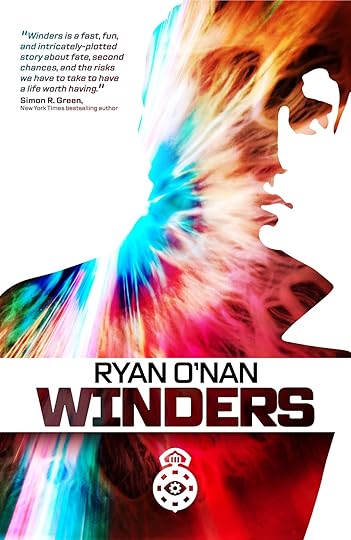
October 27, 2021
Wendig’s Heirloom Apple Review, 2021
WE HAVE APPLESIGN THE LIKES OF WHICH EVEN GOD HAS NEVER SEEN. Ahem. Sorry. What I mean is, hey! Guess what? It’s that time of the year again. The time of strange, mysterious apples. The era of apples that don’t show up in your grocery store. The epoch of apples that you can only procure from shadowy fruit carts in forgotten alleys that only appear under the light of the harvest moon. Apples that summon scarecrows to steal them. Dread, sinister apples.
Meaning, heirloom apples.
To give a little context, for those that somehow have failed to realize my obsession with apples, it’s this: years back I found an orchard at our farmer’s market, North Star Orchard, and they had boxes upon boxes of apples I was sure were a prank. Each sounded like some kind of hobbit bullshit, and I said, “These are all made up, they’re fantasy apples.” But no, as it turns out, they’re entirely real. There are thousands of apple varieties, and you only get like, five or six at your local grocery store. And those apples at your local grocery store have been in storage and transportation for a while. They’re old-ass apples, cultivated so that they stored well and traveled well. Tough, unruly apples, like the Red Delicious — once truly delicious, now only red. The Liar Apple. The Judas Apple.
So, I thought, I’ll take these strange apples home and review them, because that’s what you do on the Internet. You review things. Japanese Kit-Kats, and Odd Spatulas, and Those Teeth You Find In Your Nightstand Drawer. So began #heirloomapplereview, where I did exactly that. Except it’s Twitter, and Twitter kinda sucks, and mostly I feel like I was just starting to annoy people with it. So, I decided it was best to sequester this apple goodness in the ancient puzzle-box that it is the dusty ol’ blog. Remember those? Blogs? Good times.
Some administrative stuff before I begin:
Most of these apples are from Scott Farm in Vermont. A few of them are from North Star Orchard in Chester County, PA. This was a weird year for apples, honestly — the Scott Farm ones have always been sublime, but this year, they weren’t quite as amazing. Some were surprisingly small? (See photo below for a little Winesap dwarfed by the palm of my hand.) A few of them had some off-flavors. Not the farm’s fault, to be clear. Could be an odd year in general (certainly 2021 has been that in many ways), and maybe climate change is a factor. Not yet sure. Also, some variants below I had multiple versions of. So that let me get taste across a different spectrum. The apple spectrum.
Let us begin.
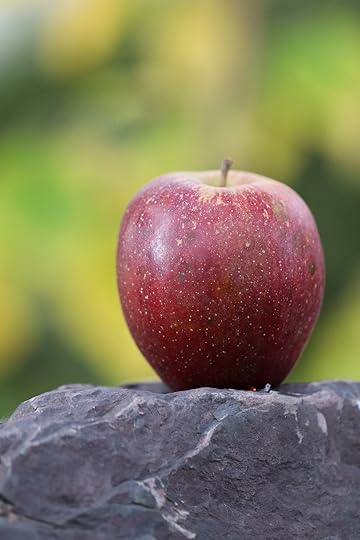
AKA: Long Tall Apple, Skinny Jim, Brumley’s Gangle
Looks reportedly like a sheep’s nose, but I dunno what kind of monstrous clown livestock produces that as its nose. “Oh, that old pasture clown, we call Ol’ Scratch. Wool like the Devil’s taint, I say. Got that big ol’ red nose, like a drunk. They say you can eat the nose, if you’re brave enough.”
Anyway. I’ve understood that Black Gilliflowers are an acquired taste, and if that is the case, I have most certainly acquired it. Upon cutting into it, I gave a good long sniff (for one must attempt to detect the scents as apple esters are released into the world, and also this is how you become addicted to apples, by snorting their essence). First thing was an off odor — hard to say what it was, but it was almost chemically, oily. It didn’t last. I bit in, found it to be pretty fucking great. That’s it. That’s my sophisticated review. “Pretty fucking great.”
Okay fine you want more details. Medium texture, tender, coarsely grained. Supposed to be dry but I found it plenty juicy — not like, juice bomb, not an apple assault on my face, but not a dry bite. That bite contained a mix of honey, pear, and pineapple. Had a nice mouthfeel too.
Rating: 8/10
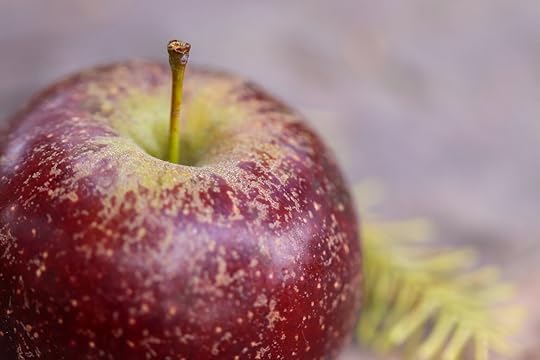 Black Oxford
Black OxfordAKA: Dark Orb, Blood Lump, and Azazel’s Throbbing Goiter
This apple, often a dark purple like a bad bruise, is a good counterpart to the Arkansas Black — kind of the northeastern equivalent. This year’s example (see above) wasn’t too dark. It had not yet turned evil enough, I suppose.
In years past, the Black Oxford was a rare treat, always one of the best apples I’d eat in that given year. I had two now, and they were not, uhhh, ideal. Right from the knife, I got a sulfur smell, which is not what you want. An apple that smells like a gassy cave does not make you want to eat it. But then the follow-up bite was no better. It was chewy, and chewy in the way that biting an old callused thumb would be chewy. It tasted more like a Winesap than I expected, and then on the finish, was redolent with notes of horseradish. Which is not what I fucking want when I eat an apple, what the fuck. Horseradish? Jesus. So, this was a bummer. I have one more, and they’re keeper apples — late-season apples often store well, sometimes into deep winter.
I might hold onto this one, let the flavors develop into December.
Rating: 2/10

AKA Cerulean Crustknobbin, LeMarchand’s Azure Bauble, John Stamos
There are some apples whose flavor I self-referentially can only think of as “apple-flavored.” They are, in some sense to me, the Platonic ideal — the tasty epitome — of apple taste. “What flavor are you getting?” you ask, expecting me to offer up notes of pipesmoke, mango, and regret, and instead I say, bluntly and in a honking voice, “APPLE. TASTES LIKE APPLE.” It is reductive and simplistic and yet, that’s what this tastes like. Like pure apple goodness. In trying to understand what that means, I think it means sweetness and tartness doing the perfect tango. You don’t taste honey, or pear, or Cheetos or treebark. It’s an apple that tastes like an apple. What a wonderful concept.
The flesh in this one was dense, with a crisp, impactful bite.
The exterior is obviously a showstopper, too — this specimen had quite a roadmap of russeting going on (kind of a woody, corky network on the exterior, rough to the touch, like an old man’s knee), but the joy is in that trademark blue shine. It’s a bloom you can actually wipe off somewhat. I tried to capture it with the image above. I don’t know what makes it that way. Ectoplasm in the form of ghost tears, I guess. Ha ha cry more, ghosts. Snowflakes. Psssh.
Rating: 9/10
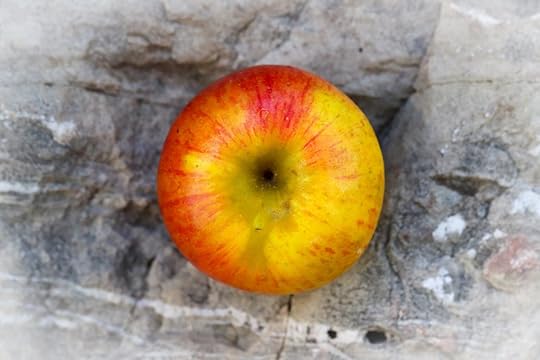
AKA: Burnt Knobling, Ruddy Merry, and Southfarthing Fool-of-a-Took
The Cox’s Orange Pippin is a British apple, which is unsurprising because it is about as British a name as an apple can have. In the year 1937 this was actually the most popular name for young boys. “Cox’s Orange Pippin, come eat your Bangers and Mash or you can’t have any Spotted Dick!” your mum would yell at you from her bedroom in Big Ben. (Though this being an English apple is curious, given that I think in England the only good fruit they grow is sausages.)
Exterior has a trademark orange blush, and fits in the hand just-so, as if it begs you to throw it at passersby. But do not! Dare not relinquish the treasure you have in your grip. For it may be my favorite apple, year after year. Smells a bit like aerosolized pear as you cut into it. A medium-texture, medium-grained bite awaits, juicy but not embarrassingly so, fresh with tastes of lemon, honey, and tropical fruits. I’ve heard them called subacid, but I find the tartness to be in harmony with the sugar.
You will eat it and you will be happy, if you are a person who likes apples.
I am at my happiest in life eating one of these. Everything else is downhill.
This apple is the parent of many varieties, for it is hard to grow and so they’ve tried to grow hardier beasts that boast of equal or better flavor, and few I’ve found really rival it, with the exception of maybe the Holstein. Which is a cow, but also, an apple. Fruit is mysterious.
Rating: 10/10
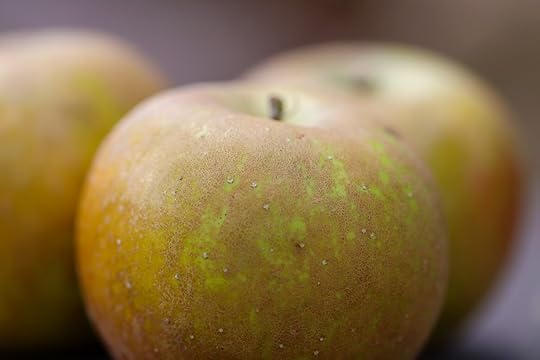
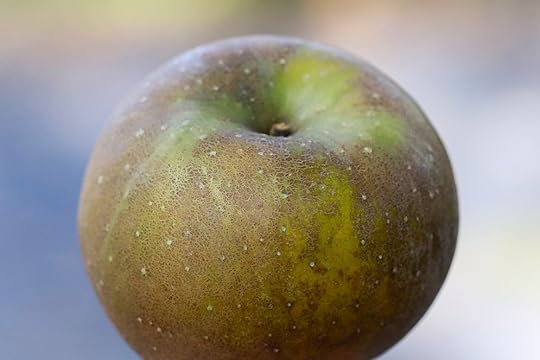
AKA: Angry Tom, Lord Fauntleroy’s Bunion, Ol’ Russell
I always like a good russet because they’re weird. A knobbed russet, for instance, looks like some kind of plague bubo. They’re scratchy and rough and not gold, not really, but more an eerie green, the green of the ghost of a swamp witch.
I had the advantage here of having two varieties of golden russet this year — the first photo is the Scott Farm, the second is from North Star. The NSO apple was a bit tough, quite dense, and tarter than I expected, though still with a preponderance of honeyed sugar taste. There came what for me is a trademark anise flavor, and curiously, a hazelnut finish I found quite pleasing. The Scott Farm variant was also good, and juicier, more tender — but sweeter, no tartness, and without as much overall complexity. Some grassiness on the finish. Perhaps better as a keeper.
They’re also tough enough to sand wood, if you care to.
Rating: 6/10, 8/10, respectively
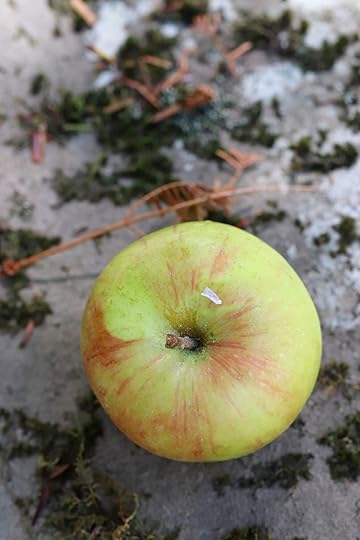 Gravenstein
GravensteinAKA: Doctor Gravenstein’s Monster
Love Gravensteins. Didn’t love this Gravenstein. Mild in every way. Mild texture, mild honey flavor, middling tartness, mediocre existence. Not every apple is a good apple.
THAT’S LIFE IN APPLE CITY, KID.
Rating: Meh out of Ennh
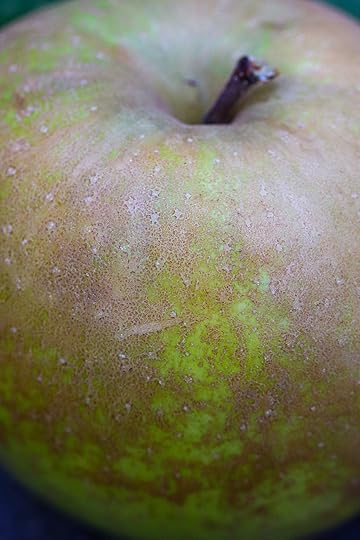 Hudson’s Golden Gem
Hudson’s Golden GemAKA: Gormley’s Gilded Panacea, Dobblin’s Cures-What-Ails-Ya, Steve
Initially I figured, okay, this is just a golden russet in big sneakers.
But it got weird.
Good weird.
But weird.
First up: it’s a chonky apple.
Second: cutting into it instantly reveals the scent of banana and vanilla. Which, as you may suspect is entirely un-apple in its essence. Apples can definitely have curious smells and flavors. Banana isn’t even all that unusual. But this one was really strong with it.
Third: okay so sometimes you smell something zesty or strange with a cut apple, but it doesn’t translate to taste, it’s just part of the cipher of esters released — but yeah no, you bite into this apple and it’s like, “What if an apple had a threesome with a banana and some Nilla wafers.” It’s pretty amazing, if entirely out-of-sync with what you expect from an apple. The aftertaste is fascinating, too — the tartness of unripe pineapple hits your palate. It’s pretty cool.
Texture is medium-soft. Not mushy or anything.
Really cool apple.
Even if it sounds like snake oil.
Rating: 8/10
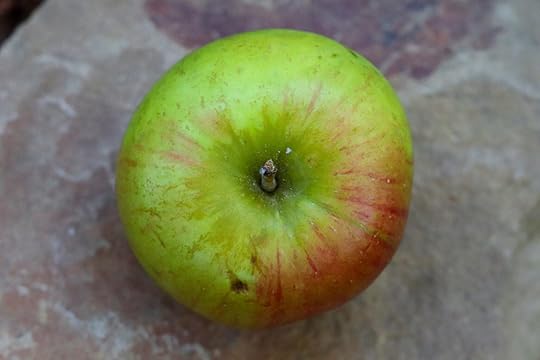
AKA: Carmine Sabatini, Carl Sunnydale
I’ve heard good things about these apples, and despite it’s fancy lad name, it’s not a particularly old apple — it’s from the late 1940s. (Sometimes you hear a fancy French name on an apple and that means it was an apple beloved by the monarchs of France, used both to eat and to pummel the unwashed poors.) So I was expecting big things with this one.
I… eennnh well yeah not so much.
It was fine! Totally fine. Floral and juicy, which is nice. But the juice wasn’t full of flavor and mostly it just tasted like someone watered down an apple. Had a nice crisp bite to it, at least. Though there was an aftertaste to it, bitter, like you licked the outside of a lemon and not the inside.
Rating: 5/10
 Keepsake
KeepsakeAKA: Corn Pop
Remember how I said the Hudson’s Golden Gem was a weird apple?
This one is even weirder.
So! Keepsake. Not sure if it really constitutes a proper “heirloom” apple, as it’s from the 1970s, but at this point that’s 50 years, so, who the fuck knows. Though I suppose that would suggest I am in fact an heirloom human. That’s what we should call the elderly from now on, by the way. How lovely is that? Heirloom. Whatever. Anyway. The Keepsake is known mostly as one of the parents of the much vaunted (and to me, mostly meh) grocery store apple varieties, the Honeycrisp. (Aka the HINEYCRISP ha ha I burned you, Honeycrisp, I burned you good.) (I’m so sorry.)
Your first impression, one not entirely clear in the photo I took, is that it’s oddly shaped. It’s like if you were looking at an apple on LSD — it has bulges and off geometry. A ferrofluid apple —
Ever pulsing.
Then, I cut into it.
Sour smell. Instantly. Sour citrus, like a soursop or custard apple fruit.
Then, then, I bit it and —
What the fuck this tastes like corn.
Sweet corn, and a little apple, but also, corn. CORN. Corn? Corn.
I have never tasted an apple that tasted like corn. I was honestly convinced I’d fucked up my mouth somehow, that maybe I was on the COVID now, and it had begun destroying my taste buds with its insidiousness. My wife tried it and while she didn’t identify the corn flavor on her own, once I called it out, she was like, “Okay, yeah.” So, I knew my mouth was not broken.
C O R N.
The rest of it is kind of a syrupy sweetness, juicy and crisp. Not a bad apple, and I can taste now what it contributed to the Honeycrisp (an apple I honestly believe is too sweet for its own good and not nearly tart enough). Weird, weird apple.
Rating: 6/10
 Lamb Abbey Pearmain
Lamb Abbey PearmainAKA: Damn Crabby Bearstain, Wham Stabby Hairpain, Cram Flabby Sparebrain
Two words: white wine and elderflower. Wait that’s more than two words. Shit. Shut up, I can too do math. Good texture, not grainy, juicy, mild, some bites almost lean savory.
What I’m trying to say is: nice apple. The kind of apple you take on a few dates, nothing really happens, but it was nice and occasionally you think fondly of said apple and you wonder where it’s been, what’s it’s up to, is it okay? Maybe you check its Twitter account, you DM and say hey how are you and the apple answers back and you have a polite exchange but not much really comes of it, and then once more the both of you fade into each other’s backgrounds.
Rating: 6/10
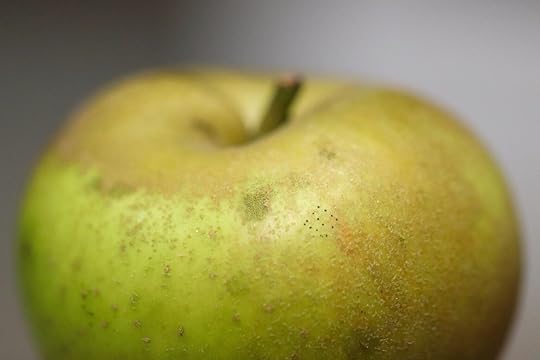 Orleans Reinette
Orleans ReinetteAKA: Betty
I had two versions of this apple, both from the same orchard (Scott Farm), and it showed the variance between two apples of one type grown by the same people in the same place —
First apple was a little nutty, a little bit honeyed, but like, funky honey. Not clover honey, but more alfalfa honey, or sourwood, something a little more mysterious.
Sweet and juicy, finely textured, dense.
Second go around, a couple weeks later, this iteration was both milder (it had lost its funk) and brighter (gained some tartness). Whether this is due to the variation from fruit to fruit, tree to tree, or because it spent just a couple-few additional weeks in storage, developing flavors, I cannot say. Maybe it went through a transformational experience. Maybe it explored itself on an international summer trip and really came into its own. It came to realize who it really was, down deep, and that’s no small thing. Of course eventually it’ll sit too long and wrinkle and rot, AS WILL WE ALL. What I’m saying is, relish your sweetness and complexity now before you decay and are eaten by squirrels who want to get drunk on your fermentedness. This has gone off the rails so I’m going to stop now.
Rating: Both a 7/10, for different reasons
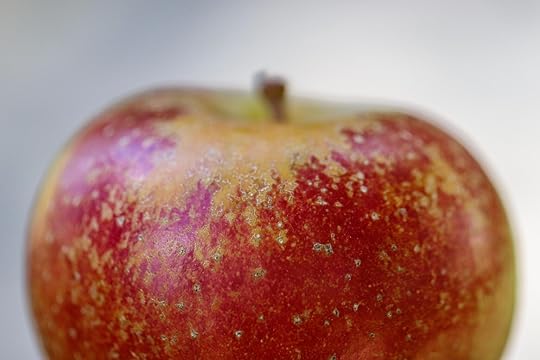 Reine des Reinettes
Reine des ReinettesAKA: The King of Pippins, The Queen of Queens, O Captain My Appleton
Oof. In 2019 I had one of these and it was one of the best fucking apples I’d ever eaten. This year I had one and I wanted to punch myself in the mouth after eating it.
Here is the journey I went through:
“TART TART TART”
“Why is it so dense”
“Oh ew it’s grainy like weird mustard”
“IT IS STEALING MOISTURE FROM MY MOUTH WHY”
“My tongue hurts and this is bad.”
“GIVE ME MY SALIVA BACK YOU SPIT-THIEF.”
“Now I taste lawn clippings, the end.”
So, ennnh, not great, Bob. Not great. It just goes to show, sometimes an individual expression of a type of apple can be total shit. Unfortunate, but whaddya gonna do. Onward and upward.
Rating: Fuck This / Goddamn Apple
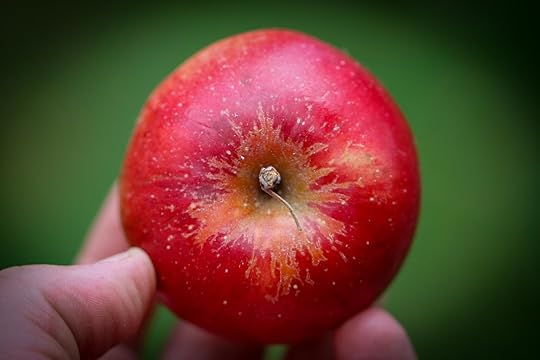
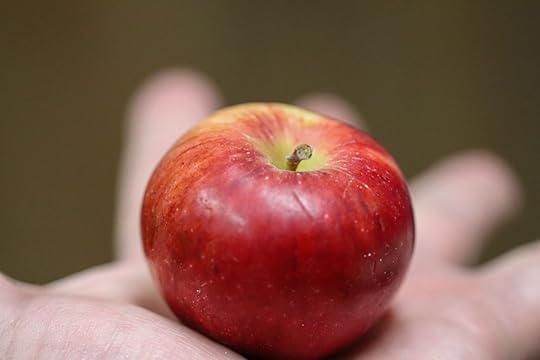 Winesap
WinesapAKA: The Town Drunk, Osbaldeston’s Cherry Fist, Tuckerton Bezoar
Pretty classic apple, the winesap — note that this is not the same apple as a Stayman Winesap, which was reportedly a seedling of a Winesap, which is to say, has nothing to do with a Winesap at all. For those who don’t know, apple seeds are more or less a genetic lottery. The seeds from one type of apple will not make more of that apple in tree-form. For that, you must graft. No, the seeds from an apple will be a roughly random carousel of apple possibilities, and most of them will be assy-tasting tannin-heavy apples that at best will work for cider and at worst will make you hurk.
This was not the best version of a winesap I’ve eaten but it was fine — it hits with that red wine and rose petal vibe, lots of floral esters suffusing the air and your nose and your mouth AND YOUR EYES AND NOW THE APPLE CONTROLS YOU wait I mean, not that last part. Hard-breaking apple. Bit chewy, but that’s not uncommon, I’ve found.
Oddly bitter finish, bitter enough to sully the experience.
Also, surprisingly tiny, this one. Sat in my hand like a li’l crabapple.
Rating: 4/10
Okay, that’s itYou can go home now.
Buy The Book of Accidents or Dust & Grim or I perish in the void.
Also Wanderers e-book is on sale for $3.99 for a few days, I dunno why, but go grabby.
(Also, to remind, I was on Felicia Day’s podcast, Felicitations, talking about AAAAAPPLES.)
October 26, 2021
Elsa Sjunneson: The Blanked Out Space Where We Should Be
A deafblind writer and professor explores how the misrepresentation of disability in books, movies, and TV harms both the disabled community and everyone else.
As a deafblind woman with partial vision in one eye and bilateral hearing aids, Elsa Sjunneson lives at the crossroads of blindness and sight, hearing and deafness—much to the confusion of the world around her. While she cannot see well enough to operate without a guide dog or cane, she can see enough to know when someone is reacting to the visible signs of her blindness and can hear when they’re whispering behind her back. And she certainly knows how wrong our one-size-fits-all definitions of disability can be.
As a media studies professor, she’s also seen the full range of blind and deaf portrayals on film, and here she deconstructs their impact, following common tropes through horror, romance, and everything in between. Part memoir, part cultural criticism, part history of the deafblind experience, Being Seen explores how our cultural concept of disability is more myth than fact, and the damage it does to us all.
[this book is essential and instructive! — cw]
***
I have always known that I was occupying a space that is considered impossible. The collective imagination of what is possible in a non-disabled society is narrow, and I live in unimagined space.
Here, I’ll give you an example:
There are no books about blind women for kids that aren’t about Helen Keller. Okay, there’s one. But it’s about a blind mom.
When I met my partner’s kids for the first time, I wanted to bring them a book to explain a little about why my eye is the way it is. Why I use a cane. Why I wear hearing aids. There was nothing in the bookstore for me to bring them. No gift that would ease my entry into their world.
At my local bookstore a few months later, I mentioned that I hadn’t found anything – and that my experience of kids books had been somewhat challenging. They all had small font. They weren’t written for non-sighted people to read.
These things belied an absence in the imagination of publishers, a space dominated by the non-disabled – but that’s only one place. The fact is there are blank spaces where disabled people should be everywhere you care to look.
When I was writing Being Seen, I was looking at the spaces where blind people and Deaf people were. Where we were being misrepresented, where our stories were being told poorly. I was deliberately exposing myself to the many bad choices that writers, filmmakers and artists have made when they have displayed disabled bodies on the page, stage and screen.
But it is the absence that I want to talk about now.
It isn’t just that there aren’t children’s books about blind people. It’s that there aren’t children’s books being printed for the blind people in their lives to read to them.
It isn’t just that as a kid I was the only Deafblind student in my classroom or school – it’s that there was an absence of other kids like me at all.
Non-disabled society doesn’t want to see us. It wants us to go away. The way that we are told this is through the lack of presence that I experience in my day to day life.
It is the absence of disabled women that is killing us. Absence in teaching professions, in medical professions, in leadership roles. Absence in stories that matter to us. Absence in representation.
The blanked out space where we should be is horrifying.
This is one of the carryovers of the era of institutionalization. In 1985 my parents were told to give me over to one, and to have another child. Would I be writing Being Seen if I had been placed in one of those places? No. I would be yet another blank spot in the world that should have been.
Being Seen is not merely about what blind and Deaf women are depicted as – who the world assumes we are as disabled women. It is about how the absence of us in the world’s imagination is killing us – it is a symptom of the sickness that our society has: ableism.
Being Seen isn’t just a book. It’s not only a piece of text that you can read. It’s an ask.
I’m asking every non-disabled person who reads it to take stock of what they believe about blindness and Deafness. I’m asking every sighted disabled person to dismantle their own misunderstandings.
I am hoping that this book helps me be better seen by the world that I live in.
***
Elsa Sjunneson is a Deafblind author and editor living in Seattle, Washington. Her fiction and nonfiction writing has been praised as “eloquence and activism in lockstep” and has been published in dozens of venues around the world. She has been a Hugo Award finalist seven times, and has won Hugo, Aurora, and BFA awards for her editorial work. When she isn’t writing, Sjunneson works to dismantle structural ableism and rebuild community support for disabled people everywhere.
Elsa Sjunneson: Website | Twitter
Being Seen: Indiebound | Bookshop.org | Amazon
October 25, 2021
The Worldbuilding In Villeneuve’s Dune
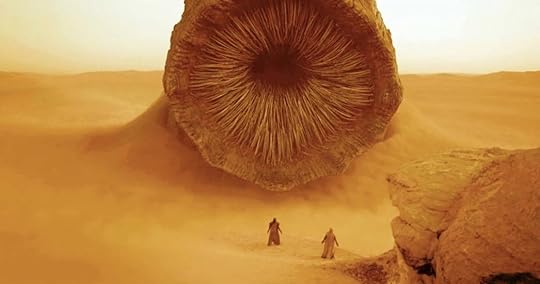 The inevitable Dune post has arrived.
The inevitable Dune post has arrived.
I mean, c’mon, you knew it was coming.
We will just get out of the way right now my review: I loved it. I did not expect to love it. I adore Villeneuve’s work pretty universally, not a bad note in that fella’s song so far, but I have a lot of squirrelly feelings about Dune. They’re not particularly complicated or controversial, these thoughts, they’re just a loose tangle of snarls and burrs that make me generally disinterested in it. To try to name the three legs of this stool: first, I read the book in high school and found it to be fine, and, like a lot of weighty sci-fi, firmly up its own ass; second, I really love the David Lynch version for maybe no good reason except I love Lynch and it’s such a weird and brave adaptation for its time (even if Lynch’s vision was itself compromised); third, as a writer of genre fiction and reader of it and as a friend to many genre writers, I’m always like, hey there are other books, you can make other books, you don’t need to keep hacking away at this one, JFC.
Any doubts I had were dashed against the rocks. I watched the film at home, which rankles some cinema purists*, but I have a pretty TV with surround sound that makes my living room better than most theatrical experiences (barring, say, IMAX), with the bonus that I can pause the movie to get up to go pee (sorry, I mean, “refill my stillsuit”). And I was held rapt by it. I watched it a second time last night, this time with my 10-year-old, and to my surprise, he seemed to like it, too (with the exception of him reaching the end and being like, “wait what where’s the next part” and I said, “I think in about two, three years” whereupon he made a face like he’d just eaten a cat turd).
It’s rare I want to rewatch a movie so quickly, if at all. This felt like a seven-course meal and a strange dream in equal parts, and I wanted to keep going back to it, to experience new tastes and to try to decipher little bits, savoring this bite, pondering over another. It’s not a happy movie. It’s a tragedy. And the film wisely doesn’t divert away from the fact that the prophecy of this desert Messiah is one that is propped up, invented, seeded by the Inscrutable Witch-Nuns. I also really enjoyed that for what is traditionally to me a very cold, speculative story, Villeneuve and the actors went the extra distance to make me feel the humanity of some of these characters. Not overmuch, not so that it feels ham-fisted, but there is I think a habit of getting so lost in the weeds of the political maneuvering and prophetic machinations that you can very easily lose the people in that equation. (Though I also could’ve used a little more here. I enjoy that the Emperor’s jealousy is kept far from us, like a shadow threatening to overtake the light — but I really wanted more character from the Baron, whose hatred of Duke Leto feels so intensely personal but has no expressed reason to be. His character in the film ends up being mostly just Wow What A Bad Guy, which isn’t quite enough.)
As usual, I also like to pick apart a thing, at least a little bit, to try to understand what went into the architecture and articulation of a particular story. If not necessary to provide a “lesson,” then to consider how other creators choose to organize and design narrative. Choices are made in the telling of a tale, and I like to try to understand those choices. Both as a “firmly up my own ass” thought exercise and also to see if there’s anything to help me sharpen how I tell my own stories. Right? Right.
Here, I think the big takeaway for me — though surely there are more to come — is in how the film hands its worldbuilding. Dune as a storyworld has a lot of it — the story of this first book is one that sits atop a rather prodigious history of its own galaxy, and one with a lot of fiddly, crunchy bits on which the story seemingly relies. It’s actually so crunchy and obtuse I’m not even sure I entirely understood it —
Up until now. Until this movie.
Which is a helluva thing, really.
I really, really love its approach to worldbuilding, which seems to match with what my own desires for worldbuilding happen to be. In capsule, I’d describe the approach as this:
When the worldbuilding is inessential to the movement of the story, it discards it.
When the worldbuilding is essential to it, it folds it into the experiences of the characters.
It does not promote worldbuilding as the story’s priority. It demotes it to being only support.
(Which, in my mind, is what worldbuilding is there to do, lest your story become an RPG manual.)
Most importantly, Villeneuve trusts the audience.
To unpack this a little more —
There can be a habit in some movies or books to tell some of the background worldbuilding in a display of grand exposition — a voiceover, an encyclopedic chapter, a speech by a character Haughtily Explaining Things In A History Lesson. The story becomes a temporarily mouthpiece for Exposition Delivery. Now, the writing advice of Show Don’t Tell is well-meaning but not universally applicable, because sometimes it’s far more direct and empathetic to the audience to just tell them a thing rather than go through the shadow puppet play in order to demonstrate it. Just the same, it can also be true that Capital-T Telling can become very boring, very quickly. Nobody wants a story to be a lecture, even if that lecture is just trying to teach a class about its own history, culture, science, food, religion, what-have-you. This is especially true in film, where you need to be particularly judicious with your time. A minute of movie can be $100k or more in cost.
In Dune, Villeneuve is glad mostly to expect that the characters of this world know what’s happening, and to just move through it, and past it. (Contrast this with the godawful worldbuilding exposition found in a movie I otherwise quite like, The Force Awakens. The C3P0 “As you know, Bob, er, I mean, BB8” scene is so jarringly bad, as are any scenes where Leia explains to Han things that Han obviously definitely knows already.)
I’m spoiling a bit here (though it’s also difficult to spoil a story that has been around for over 50 years in a variety of iterations), so close your eyes now if you don’t want any spoilers at all —
But in the early scene where Duke Leto receives the Imperial Decree or whatever-the-fuck-it-is, we don’t need a lot of data. Simply by pushing forward into that scene without waiting for you to catch up, we swiftly learn there’s an Emperor, he spent a lot of money to send his envoy here, Leto’s signet ring is important in asserting his authority, and this is a moment of great significance for the Atreides family (one they hope is ascendant but that is ultimately tragic). We get a very brief glimpse of a Bene Gesserit witch but we really don’t know who all the Daft Punk motherfuckers are who are hanging out there, and it doesn’t really matter. I mean, it matters if you view story as a collection of details and data, but if you care about the broad human strokes of it, it really doesn’t add up to anything useful except trivia. (That said, there are those readers and genre fans for whom it is the trivia that matters most, and these tend to be the readers and watchers that care most about the notion of “canon.”) Villeneuve trusts you, the audience, to gather the context clues and to move on.
When context clues aren’t enough, the worldbuilding is delivered in merciless, in-narrative experiences. When it’s time to know what a Stillsuit is, the narrative is allowed do double-duty in the story — it’s about the suit being fitted to the Duke and to Paul, and in that we get a host of vital narrative bits: we meet Liet Kynes; we see how fiercely protective Gurney is over Leto; we see that Paul is able to intuit things about Fremen life and culture, and also that Kynes recognizes it and is aware of the prophecy. It’s a lot of juiciness while simultaneously telling us what a Stillsuit is. Later, we learn of a “sand compactor,” and Villeneuve doesn’t stop to explain it — he’s just like, “Fuck you, it is what is says it is, and you’ll see it later, it’s fine.” Then he just… ushers you past it.
It’s a good approach, because it doesn’t bog you down in details, and it makes sure that the focus of the story is on what matters most in the story: the characters. They’re why we’re here — we’re not here for the internecine grappling of empires and fiefdoms. We’re here for the people inside that internecine struggle, because without them, the story just becomes another bad high school history lesson where they fail to focus on why individuals matter and instead demand you simply know the dates of their kingly or presidential reigns, as if that’s all that really matters.
It’s wonderful. I like it.
Not to mention, it’s a beautiful movie. Truly.
I may have more thoughts on it at some point, but for now —
I HAVE COMMITTED BLOGGERY.
*presses big fat chonky ring into blob of wax*
*signet ring image is a screaming possum*
HOUSE WENDIG IS TRIUMPHANT.
Now buy my books (Book of Accidents, Dust & Grim) or I die in the desert of obscurity.
BYE
* okay to unpack “cinema purists” a little, there has, particularly with Dune, been this attitude that somehow seeing a movie in a movie theater is How You Must See Filmses, which of course utterly disregards the fact that the life-span of a movie is at best 5-10% of its total experience, and the rest of it will be on televisions and tablet screens and, I dunno, eventually on the control panel of your SmartFridge or some shit. It’s also ableist and pretentious and is a weird attitude to shove in people’s faces during a fucking global pandemic, AH YES THE ONLY WAY TO SEE A MOVIE IS TO GO OUT AMONG THE UNWASHED LUNG-HORKING MASSES AND ENJOY THEIR RESPIRATORY MIASMA, WHICH WILL BE THRUMMED INTO YOUR BRONCHIAL TUBES, FOR NO MASK IS A DEFENSE AGAINST THE MIGHT OF DOLBY ATMOS. Plus in this day and age people have 4k tablets and 8k TVs and room-filling surround sound or killer headphones. Shit, some of my favorite movies I watched on crappy CRT televisions in the 80s and 90s. It’s fine. If you like watching movies in theaters, do so! Huzzah and hooray. Just don’t judge me for not wanting to go to one of our local shitbox theaters where someone will bring a screaming baby and another person will be texting the whole time in front of me and a third jerk will be dully kneeing my chair every 47 seconds.

